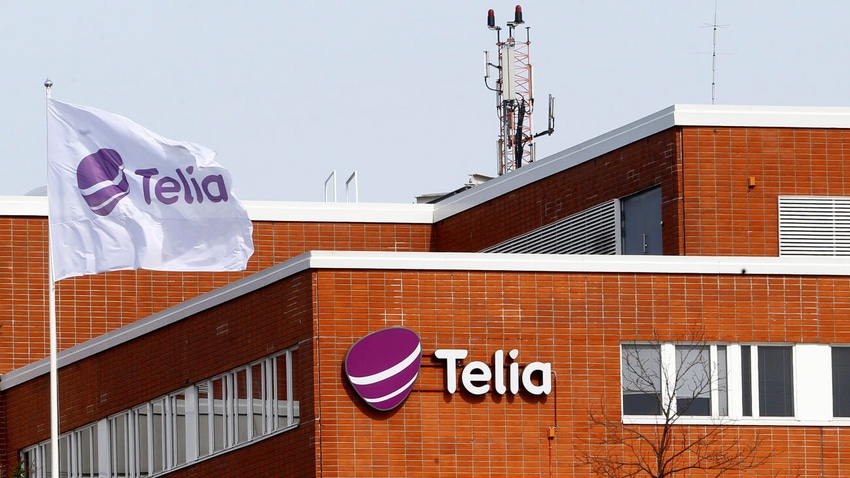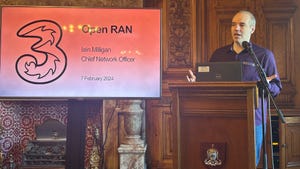Eurobites: Telia and friends land EU cash for 5G-fueled innovation projects
Also in today's EMEA regional roundup: Sateliot secures €6 million from Banco Santander; EU casts an eye over competition in the AI market; Zzoomm on the naughty step.

Swedish operator Telia and research institute RISE are among a group of organizations set to receive €3 million (US$3.3 million) from the EU to establish 5G networks at five locations in Sweden. The networks will be used to explore how 5G can help drive innovation in sustainable agriculture, transport, logistics, port safety and traffic management in cities, using the likes of agricultural robots, drones and connected vehicles. All of the networks will be connected to the NorthStar innovation program set up by Telia and Ericsson. The projects will run for three years.
Sateliot, a Barcelona-based company planning to launch what it says will be the first constellation of low Earth orbit (LEO) nanosatellites providing 5G coverage for IoT applications, has secured €6 million ($6.5 million) in funding from Banco Santander. The funding, says Sateliot, will enable it to accelerate the development of its technology and the deployment of its satellite constellation. This year will see Sateliot launch four new satellites, a move that the company says marks the beginning of its "commercial phase."
The European Commission suspects that all may not be well, competition-wise, in the associated markets of virtual reality and generative AI, and so it has launched a call for contributions from those who might be able to shed some light on what is happening. The Commission says it plans to look into some of the agreements that have been struck between large digital companies and generative AI developers. In particular, the Commission is, in the words of its statement, "checking whether Microsoft's investment in OpenAI might be reviewable under the EU Merger Regulation." (OpenAI is the company that spawned the all-conquering ChatGPT.)
As negotiations over the EU's proposed Gigabit Infrastructure Act rumble on, the German Broadband Association (BREKO) and the German Association of Energy and Water Industries (BDEW) have teamed up to call for the Act to include measures that encourage "investment-friendly conditions" supportive of companies attempting to construct and operate fiber networks within the bloc. The two associations argue that in order to prevent what they fear are the potential negative effects of the Act, "regulation must allow telecommunications providers to reject applications from other providers for access to their infrastructure under certain conditions, if viable alternatives – in particular in the form of virtual access products – are offered." They recommend that "virtual bitstream access" as an alternative to access to physical infrastructure should be included in the proposed regulation.
Customers of Deutsche Telekom-owend IT service provider and digital services supplier T-Systems will gain access to AQT's quantum computers under a new partnership. The ion trap-based quantum computers will be accessible via T-Systems' multi-quantum cloud offering. The companies say the deal supports supports European sovereignty in quantum computing.
Altice France has lost its chief information officer, Bloomberg reports, with Grégory Quéré deciding to leave the company after what is described as "months of turmoil" at the Patrick Drahi-owned operator. He is being replaced by Jean-Pierre Large from payment technology company Ingenico.
UK broadband provider Zzoomm (not to be confused with the outfit behind the pandemic-friendly video chat phenomenon) is the latest communications company to fall foul of the Advertising Standards Authority (ASA). A direct mailing it issued in July of last year claimed that those switching from BT's Fibre 1 service to Zzoomm's full-fiber offering would save more than £240 ($305) a year. The ASA did the sums and concluded this wasn't true.
Vodafone Portugal says its Internet service has landed the top spot in two recent tests, one of them conducted by Deco Proteste and looking at mobile Internet and the other, carried out by Ookla, comparing fixed Internet offerings. Vodafone Portugal reaches more than 4.8 million customers with its mobile network and more than 4.6 million homes and businesses with its fiber.
Read more about:
EuropeAbout the Author(s)
You May Also Like












